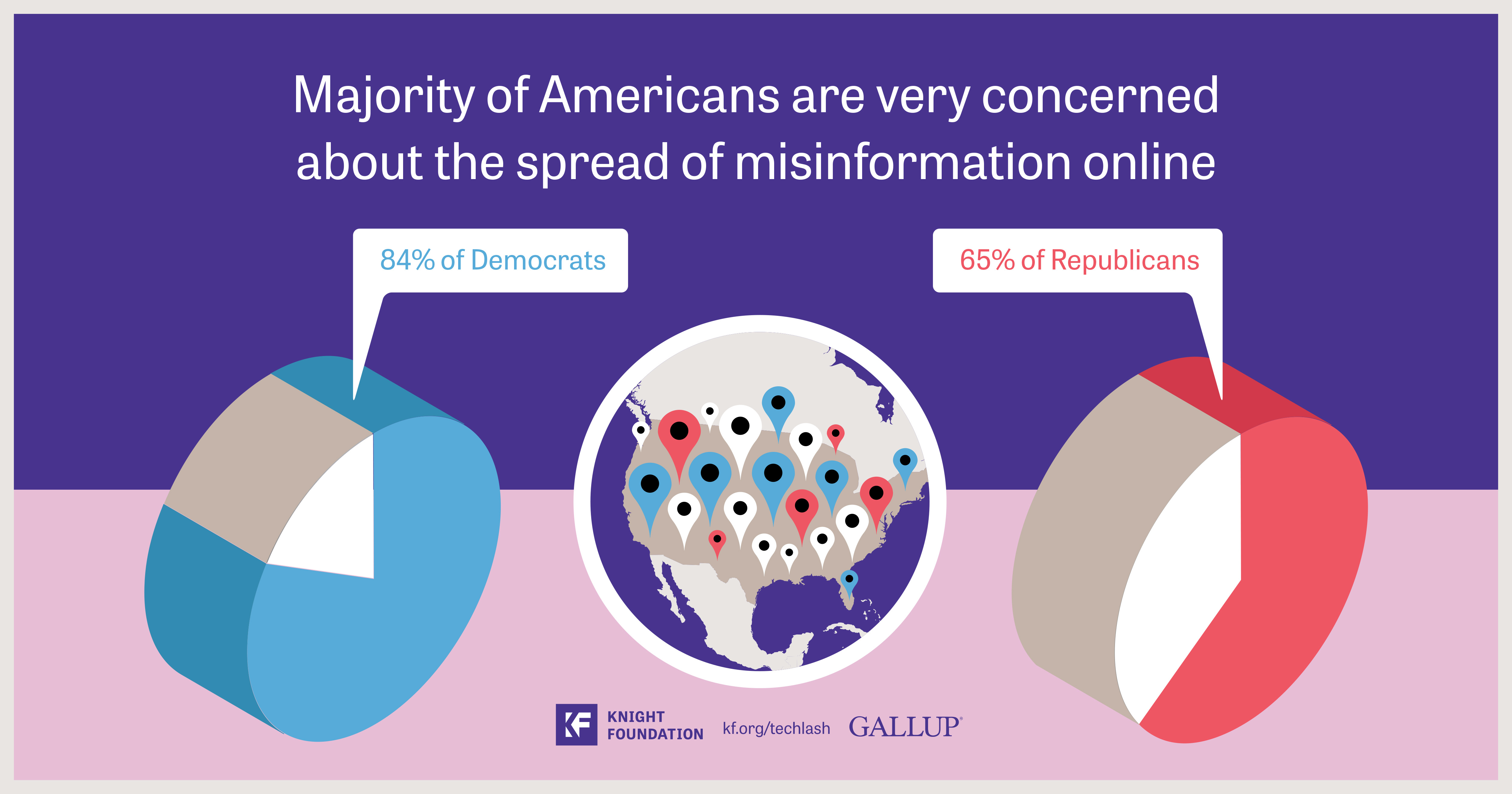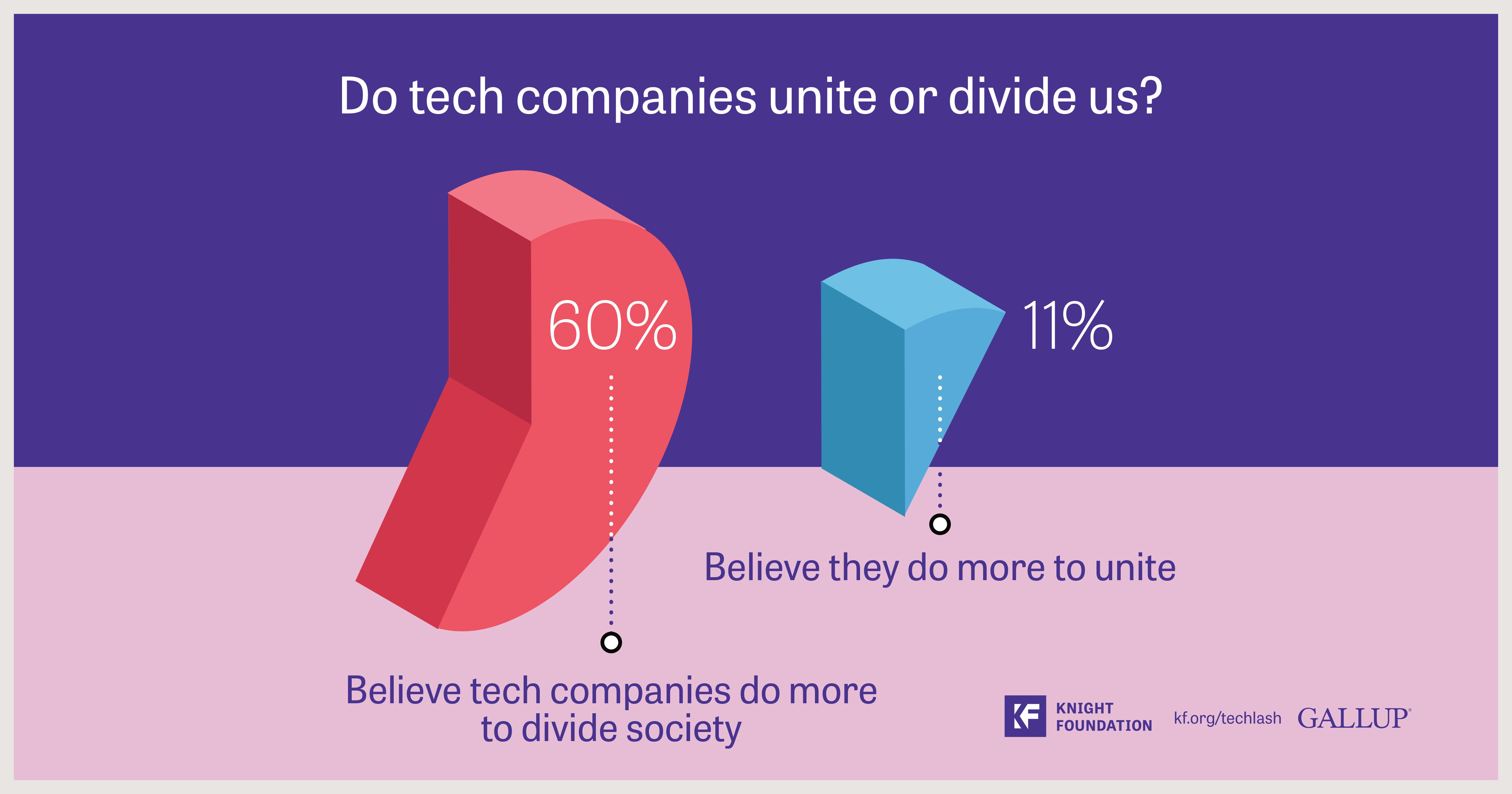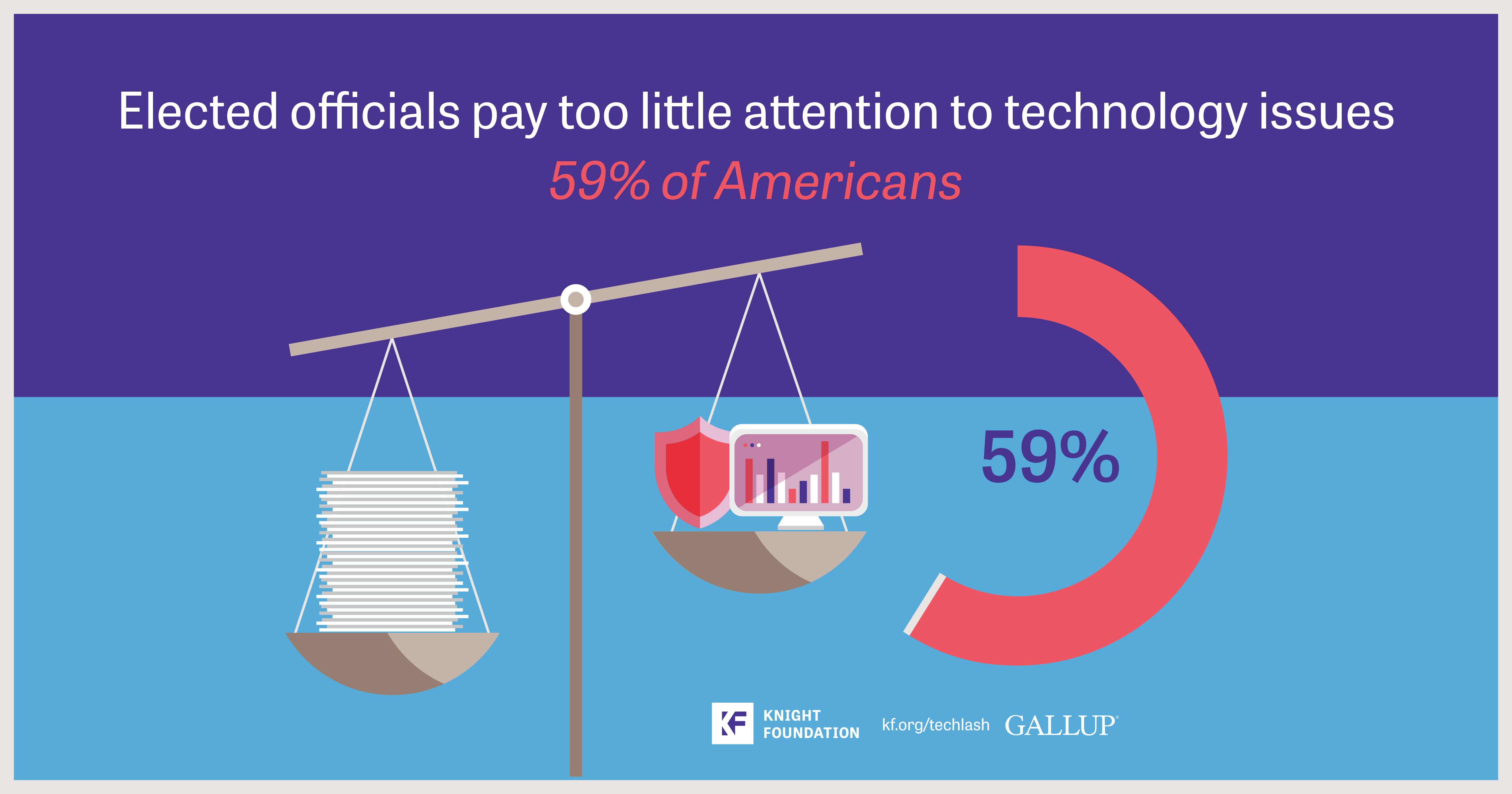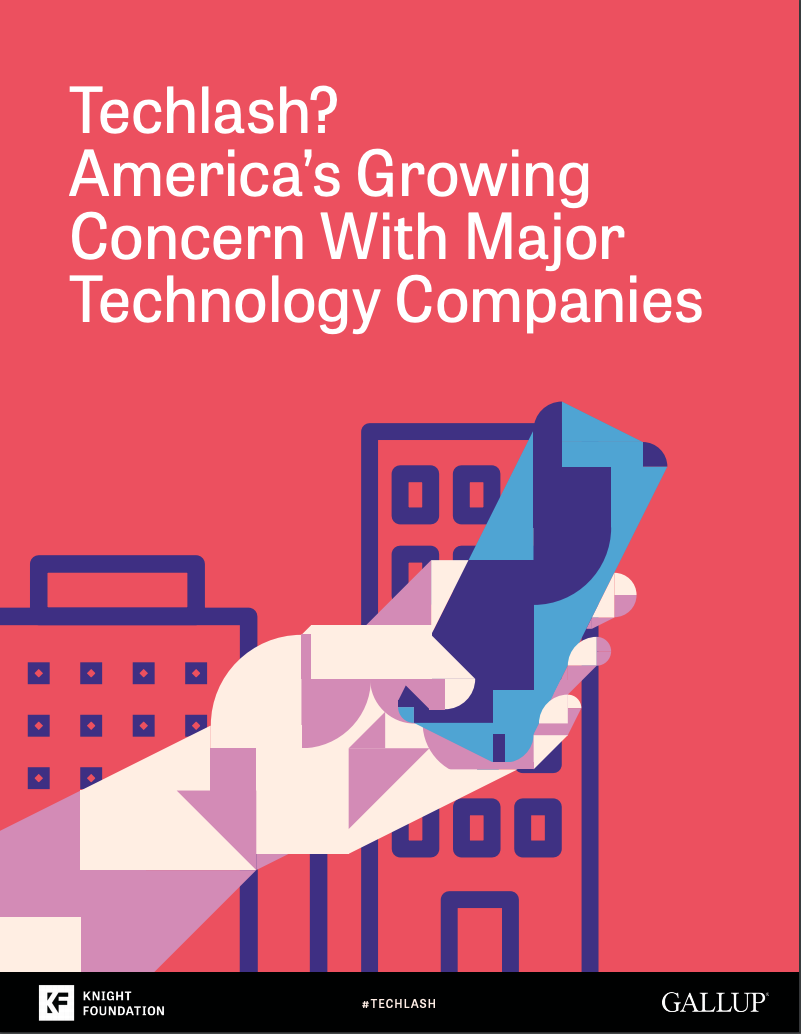Just a few years ago, Americans were overwhelmingly optimistic about the power of new technologies to foster an informed and engaged society. More recently, however, that confidence has been challenged by emerging concerns over the role that internet and technology companies — especially social media — now play in our democracy.
A new Knight Foundation and Gallup study explores how much the landscape has shifted. This wide-ranging study confirms that, for Americans, the techlash is real, widespread, and bipartisan. From concerns about the spread of misinformation to election interference and data privacy, we’ve documented the deep pessimism of folks across the political spectrum who believe tech companies have too much power — and that they do more harm than good.
Despite their shared misgivings, Americans are deeply divided on how best to address these challenges. This report explores the contours of the techlash in the context of the issues currently animating policy debates in Washington and Silicon Valley. Below are the main findings from the executive summary. We invite you to download the report, and join the conversation on Twitter using #techlash.
EXECUTIVE SUMMARY
1. Americans have largely negative views of major internet and technology companies’ impact on society.

Their top concern relates to the amplification of misinformation on the internet.
- 74% of Americans are very concerned about the spread of misinformation on the internet. Despite a partisan gap, majorities of both Democrats (84%) and Republicans (65%) are very concerned about this issue.
- 68% are very concerned about the privacy of personal data stored by internet and technology companies, and 56% are very concerned about hate speech and other abusive or threatening language online.

Americans believe that major internet companies:
- do more to divide society (60%) than to unite it (11%)
- allow powerful interests to control society (48%) rather than give people the power to change society (19%)
- magnify unpopular views (52%) rather than make them less visible (17%)
- create more problems than they solve (47%) rather than solve more problems than they create (15%)
- contribute to making people misinformed about the news (47%) rather than making them informed (19%)
Republicans tend to be more critical of internet and technology companies than Democrats and independents.
2. The public believes internet and technology companies have too much power — a sentiment held across all demographic and political groups.

- 77% of Americans say major internet and technology companies like Facebook, Google, Amazon and Apple have too muchpower.
- Americans are equally divided among those who favor (50%) and oppose (49%) government intervention that would require internet and technology companies to break into smaller companies.
3. Americans distrust social media companies to make the right decisions about their content but are divided on the role of government to regulate them.
- Americans do not trust social media companies much (44%) or at all (40%) to make the right decisions about what content should or should not be allowed on online platforms.
- However, they would still prefer the companies (55%) to make those decisions rather than the government (44%).
4. Americans across the political and demographic spectrum say political leaders are not paying enough attention to technology issues.

- 59% of Americans believe elected officials and political candidates are paying “too little” attention to issues dealing with technology and technology companies.
Technology and Democracy
Sound information is the lifeblood of a democracy. Today, more and more information is mediated by digital technology – and with impacts that are not yet well understood. In this age of many-to-many communication, there is a clear need for fresh thinking and research to inform a new generation of democratic institutions and norms that […]
The Knight Research Network
How can our democracy remain informed when the analog mechanisms that protected society’s information flows are showing evident signs of strain in the digital age? There is more information – and access to information – than any time in history, but the trusted institutions and information gatekeepers of the past are no longer able to […]
In U.S., Most Oppose Micro-Targeting in Online Political Ads
WASHINGTON, D.C. — In the John S. and James L. Knight Foundation and Gallup’s latest research, a solid majority of Americans do not want political campaigns to be able to micro-target them through digital ads: 72% say that internet companies should make no information about its users available to political campaigns in order to target […]




